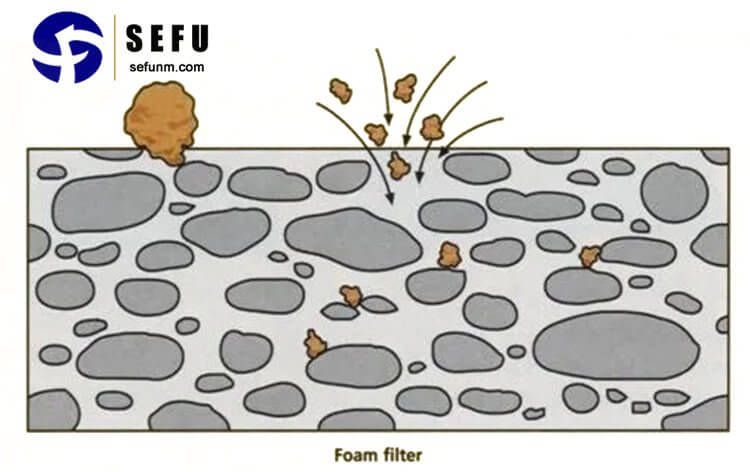Steel casting plants play an important role in the manufacturing of various industrial and consumer goods, from large structural components to small parts used in electronic devices. The process of steel casting involves melting steel alloys and pouring them into molds to create a specific shape or form. As with any manufacturing process, there are challenges to be faced, and one of the most significant challenges in steel casting is to ensure that the final product is of high quality and meets the required specifications.
One of the ways to achieve high-quality steel castings is through the use of Zirconia ceramic foam filters. These filters are used in the steel casting process to remove impurities, prevent casting defects, and improve the quality of the final product. In this article, we will examine the dimensions of Zirconia ceramic foam filters used by steel casting plants when casting large steel castings.
The Function of Zirconia Ceramic Foam Filters in Steel Casting
Zirconia ceramic foam filters are designed to filter molten metal during the casting process. The filters act as a barrier, trapping impurities and preventing them from entering the mold. The result is a cleaner, more homogeneous casting that meets the required specifications.

Zirconia ceramic foam filters are made from a highly porous ceramic material that allows the molten metal to flow through while trapping any unwanted impurities. The filters are typically placed in the gating system of the casting, where they act as an efficient filter. The filters are available in various sizes and shapes, making them suitable for different types of steel castings.
The Importance of Correct Filter Dimensions
When it comes to Zirconia ceramic foam filters, size matters. The dimensions of the filter used in steel casting can significantly impact the quality of the final product. The filter’s size and shape determine the amount of molten metal that can flow through it, the volume of impurities it can trap, and its overall effectiveness.
For large steel castings, the dimensions of the filter are even more critical. The amount of molten metal required for large castings is significant, and the filter must be large enough to accommodate the flow of molten metal while still maintaining its filtering efficiency. If the filter is too small, it may become clogged, reducing the flow of molten metal and resulting in casting defects.
On the other hand, using a filter that is too large for the casting can have a negative impact on the overall quality of the final product. A filter that is too large may not be able to trap impurities effectively, resulting in defects in the casting.
Finding the Right Filter Dimensions for Large Steel Castings
The dimensions of Zirconia ceramic foam filters used for large steel castings depend on several factors, including the size of the casting and the type of steel alloy used. Typically, the filter should be at least 1.5 times the size of the gating system to ensure a consistent flow of molten metal while maintaining its filtering efficiency.
Steel casting plants must take into consideration the size and shape of the casting and the gating system when determining the dimensions of the Zirconia ceramic foam filter. The dimensions of the filter should be carefully chosen to ensure optimal performance, taking into consideration the type of steel alloy used, the flow rate of the molten metal, and the volume of impurities.
Conclusion
In conclusion, Zirconia ceramic foam filters are essential in steel casting plants to ensure high-quality steel castings. The dimensions of the filter used for large castings are critical to its effectiveness. The filter’s size and shape determine the amount of molten metal that can flow through it, the volume of impurities it can trap, and its overall efficiency. It is essential to find the right filter dimensions for each casting to ensure optimal performance, reduce casting defects, and improve the quality of the final product. Steel casting plants must continue to innovate and improve their processes to meet the growing demand for high-quality castings in the manufacturing industry.


